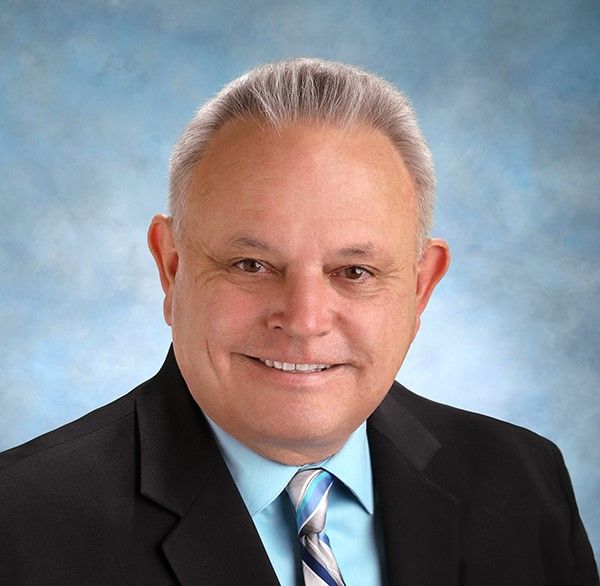Faces of Ava: Stockton Councilmember Dan Wright
June 3, 2024
Councilmember Dan Wright pushed for a long time to get Stockton to join a community choice energy supplier. While Stockton will be joining with Ava next year, Wright’s time in politics is coming to a close. He reflects on his career in education and local government.

For the past three decades, Dan Wright has devoted his career to Stockton.
It hasn’t been an easy time for California’s 11th largest city. Leadership of city government and the school district has seen frequent turnover. The city was a hot spot of the subprime mortgage crash in 2007, with one in 30 homes being foreclosed, the highest rate in the US. The median home price fell 44% that year. With that came a decline in tax revenues, pushing the City of Stockton into one of the country’s largest municipal bankruptcies.
But Wright has been persistent. Since 1993 he has been a principal in Stockton public schools and served in the leadership of the school district. He moved over to the City Council in 2015.
He was a champion for Stockton joining Ava Community Energy, and represents the city on its board.
After two elected terms, and an unsuccessful run for mayor, he may be approaching the end of his political career, as he faces the city’s term limits.
Wherever he goes next in his career, he will have a strong legacy to look back on.
Early Life
Born and raised in Madison, Wisconsin, Wright also attended the state university there, getting a degree in elementary education. Since US teaching jobs were scarce at the time, he got recruited to teach at an American school in Managua, Nicaragua.
Living there for almost three years, he met his wife at her 19th birthday party (he was 24 at the time). They followed a former roommate to south Texas where both found jobs in education. Wright taught middle school for three years, before his wife urged him to move to Los Angeles, where she had relatives.
While teaching in South El Monte he got interested in the administration side. “I had a principal who mentored me,” Wright recalls. “He thought I would be a better principal than teacher, and he was right.”
“I was a good teacher but never great,” he recalls. “I was too busy being a young person. I matured quickly when I became an administrator.”
The Education Life
After getting a graduate degree in school administration at CalState Los Angeles, his first administrative job was in Stockton in 1993. He had principal and assistant principal posts at Harrison Elementary, Montezuma Elementary, Hamilton Middle, and Commodore Stockton Skills School.
After stints in the schools he moved over to the central administration of the Stockton Unified School District, working as a director and assistant superintendent. He also worked toward a doctorate in school administration, finishing all but the dissertation.
Stockton has been a rough place for superintendents, going through a string of 14 in the past 17 years. Wright attributes that to how school board members are elected. “There is a general dissatisfaction with the schools, so it’s easy to beat an incumbent,” he says. “That means there is not much time to prove your worth before three or four seats turn over. Then the people who hired the superintendent are gone and the new people want a new superintendent.”
Wright was one of those 14, serving as acting superintendent for a year. “The District was in a lot of trouble, there was a lot of infighting in the central office, and I left it with a positive financial standing,” he said in an interview with KCRA news.
Looking back on his 25 years in education and administration, he cites as a highlight his stint as principal of Harrison Elementary, where he served after being assistant superintendent.
“There were lots of good people there but they needed someone to lead them,” he says. “We built a leadership team and made some decisions that required everyone to march in the same direction. Some people left, new people came in, and we built one of the top schools in the district.”
“The problem with underperforming schools is rarely the people, it’s a lack of vision,” he adds. “You should be able to see the vision when you walk through the classrooms.”

Actual Politics
Sitting in the superintendent’s seat for a year “was my introduction to the world of educational politics, which led to actual politics,” he says. “I learned how to manage people and expectations.”
His career in actual politics began in 2015 when he was appointed to fill a vacant seat on the Stockton City Council. He ran for election and won in 2016 and 2020.
Wright was on the Council just as Stockton emerged from bankruptcy. The City had filed for Chapter 9 bankruptcy in 2012, due to over $2 billion in long-term debt driven by declining tax revenues from the housing and stock market crash of 2008, combined with overly generous pension and health care for city workers. At the time it was the largest US city ever to declare bankruptcy. It came out of bankruptcy in 2015.
“We had to do away with post-employment health insurance and retirement benefits,” Wright says. “That makes it hard to attract workers or keep them.”
Stockton also had to cut the size of its police force to about 400 officers. Even though Stockton is the same size as Pittsburgh, Cincinnati and St. Louis, all have police forces that are two or three times that of Stockton. St. Louis has over 1300 officers.
“We worked to establish community policing, with more public engagement,” Wright says. “But it’s hard to do that when we are short on officers, since they don’t have time to get out of their squad car. It requires full funding to execute.”
The cuts have put the city back on solid financial footing, but the needs continue to grow. Wright has focused on expanding housing for all, especially for the unhoused. And that work is paying off. “We have over 600 transitional housing and shelter beds opening this year, with more in the pipeline,” he says.
Since Stockton has term limits for elected officials, Wright is facing the end of his time on the Council next year. To make sure his projects continue to move forward he ran for mayor. Unfortunately, so did many others — out of six candidates he came in third, knocking him out of the fall race.
Joining Ava
Another unfinished task is Stockton’s new membership in Ava Community Energy. Wright began pushing for a community choice energy agency (CCA) in 2016. The Council voted in 2021 on his proposal to start their own CCA, a vote Wright lost 1-6. Wright came back with the idea of joining Ava, and that idea passed 7-0.
“The key was getting Harry Black, the city manager, to come along,” says Wright. “He has a lot of sway with the Council due to his financial sense.”
Black had an “East Coast idea” of what a CCA is, Wright says, making it seem like more of a gamble than it is in the California model. “The California model is more supportive of community collaboration,” he says. “If the CCA were to fail the customers would just revert to PG&E, which could be confusing but it’s not a financial risk.”
Ava service was scheduled to start in April 2024, but was pushed back a year due to a CPUC decision. Wright, Stockton’s representative on the Ava board, says community reaction has been overwhelmingly positive, and many are frustrated by the delay.
“Frankly there is a strong anti-PG&E sentiment here due to the wildfires, the lack of accountability,” he says. “We like that Ava has a Community Advisory Committee, so the public has a voice.”
Wright is especially interested in building out electric vehicle chargers and getting businesses involved. Ava offers free consulting to help businesses electrify their fleets.
“The local programs are what I’m mostly interested in,” Wright says. “The savings from electricity procurement are good, but small, since most of the cost is in transmission.”
He is also excited about funding opportunities from the federal Inflation Reduction Act (IRA), including billions of dollars for clean energy projects that benefit low-income communities like Stockton.
“You have to remember that in San Joaquin County, 50% of the population is one paycheck away from financial disaster,” he says. “We will be all in on the IRA, primarily for the many living-wage jobs it will provide.”